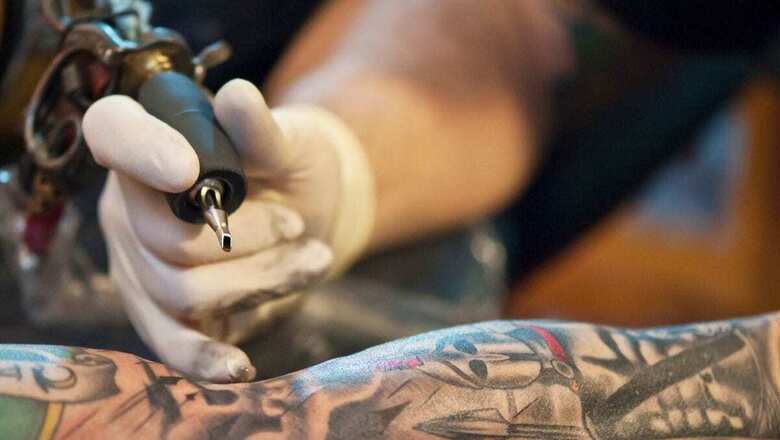
views
Exposure to tattoos may be linked to an increased risk of cancer, a latest Swedish study has found. The study, published in the peer-reviewed medical journal The Lancet, found that tattooed individuals have a 21 per cent increased risk of malignant lymphoma versus non-tattooed individuals.
The cancer in the lymphatic system, which includes lymphoid tissues and lymph nodes, is called lymphoma and if this cancer spreads, it is known as malignant lymphoma. The study found no evidence of increasing risk with a larger area of total tattooed body surface.
The study — conducted by three researchers from Skåne University and Lund University — claims to be the first to provide insight into a potential association between tattoo exposure and lymphoma using a population-based study design with a large sample size. However, the authors have asked for further research to strengthen their findings. “The causality cannot be conferred from a single epidemiologic study, and more research is needed.”
According to the study’s findings, tattoo ink often contains carcinogenic or cancer-causing substances such as “primary aromatic amines, polycyclic aromatic hydrocarbons, and metals”.
The tattooing process triggers an immune response, leading to the movement of tattoo ink from the injection site. While pigment deposition in lymph nodes has been documented, the long-term health implications are still unknown, according to the study.
How the study was conducted
The study utilised Swedish National Authority Registers, which cover the entire population, to examine the correlation between tattoo exposure and the incidence of malignant lymphoma and its subtypes.
The study included a sample size of 11,905 individuals. Among these participants, 54 per cent of the cases (those who had the condition being studied, totalling 1,398 individuals) responded, and 47 per cent of the controls (those who did not have the condition, totalling 4,193 individuals) responded.
“The tattoo prevalence was 21 per cent among cases and 18 per cent among controls,” said the study. “Tattooed individuals had a higher adjusted risk of overall lymphoma. The risk of lymphoma was highest in individuals with less than two years between their first tattoo and the index year.”
Index year means a specific year used as a reference point when the individual got the tattoo.
Important to monitor substances that go into making of tattoo inks: Indian Experts
According to Dr Rajeev Jayadevan, Convener, Scientific Committee and past president, India Medical Association (IMA), Cochin, “such studies are not conclusive proof of tattoos causing cancer but are the starting point of a more thorough enquiry from other researchers from other centres and countries”.
“It is a case-control study which is ideal for the purpose, where a group of people with a relatively uncommon disease are compared with people without the disease, and both groups are asked about a specific exposure such as smoking or alcohol.”
Dr Vishal Rao, chief of head and neck surgical oncology and robotic surgery at HCG Cancer Centre, Bangalore, labelled the study as “ground-breaking”. “The study illuminates a potential link between tattoos and a higher risk of lymphoma, emphasising the need for rigorous regulatory measures on tattoo ink composition.”
Rao highlighted the importance of monitoring the substances that go into the making of tattoo inks. “While further epidemiologic research is crucial to establish direct causality, the findings underscore the importance of monitoring and controlling the carcinogenic chemicals in tattoo inks to safeguard public health.”
Experts pointed out that all research methods have their limitations. For instance, Jayadevan explained that a ‘case-control study’ is fraught with recall bias.
“This means that a person who is suffering from cancer is more likely to recall and respond to a question of whether they received a tattoo in the past. The study had several people in both groups who did not respond to the question. It is possible that the group with cancer felt it was important to respond to the question, and hence the percentage was greater,” Jayadevan added.
“It is also possible that the people who received a tattoo had some other form of exposure or lifestyle risk factors (these are called confounders) which could explain the observed difference.”
Another observation, Jayadevan added, is the distinct link with laser tattoo removal. “This is especially interesting because laser is known to further alter the ink, leading to new chemical compounds, as well as a risk of inhaling these chemicals during the process, increasing the quantum of exposure.”



















Comments
0 comment